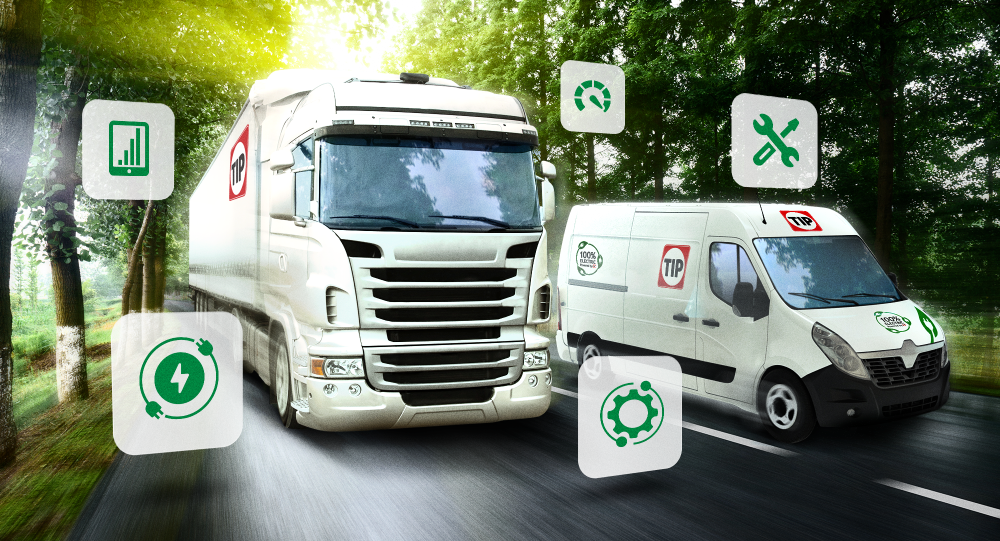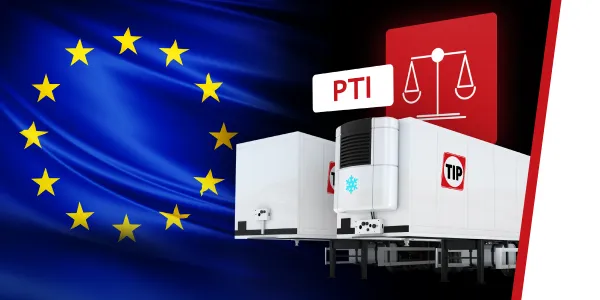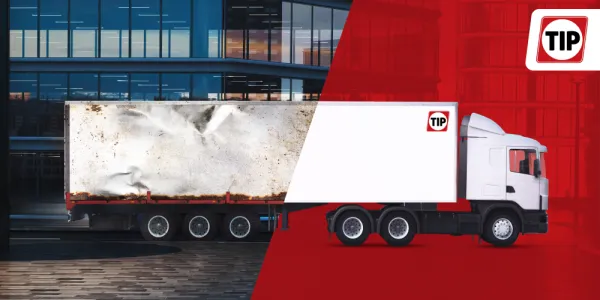Sustainable journey: challenges and solutions
To prevent a “climate catastrophe”, keeping temperature rises within 1.5°C is required, according to scientists. To come to solutions, world leaders met once again in Glasgow last year for the United Nations Climate Change Conference (COP26).
One of the four main goals of this summit is the 1.5°C pathway, to secure global net-zero by mid-century and thus, reverse the impact of carbon emissions on climate change.
Once again, governments have pointed fingers at emissions from road transports.
The reason is obvious:
The heavy-duty vehicles (HDV) having a gross vehicle weight rating greater than 3500kg account for 25% of CO2 emissions from road transport in the EU, and for 5% of total EU carbon emissions. This is the equivalent of the carbon footprint of more than 30 million people within a year or 200 million tons of CO2.
Most trailers do not directly emit CO2. However, their designs affect the tractive force exerted by the pulling vehicle and therefore, contribute substantially to the CO2 emissions and fuel consumption of HDVs.
Besides that, the manufacturing of trucks and trailers requires natural resources and operating a large network of trucks and trailers workshops comes along with a significant carbon footprint.
Evidence suggests that road transportation and sustainability are mutually exclusive concepts.
Authorities have stepped in and are putting more and more focus on the industry in order to reach its carbon emission reduction targets. Within the EU, the European Green Deal is an enormous plan aiming at transforming the EU into a modern, resource-efficient and competitive economy, ensuring
- no net emissions of greenhouse gases by 2050
- economic growth decoupled from resource use
- no person and no place left behind
These objectives will be targeted with a vast number of legislations including topics like stricter road transport emission limits, low emission zones or subsidies for alternative fuels.

The transportation industry requires the big players to take a lead in sustainability
In the advent of an economy that is transitioning towards carbon neutrality solutions need to be promoted. The big players in the market bear a significant responsibility in recalibrating their business models. The good news, sustainability is turning into a highly profitable business.
Based on a long-term study performed by global consulting company McKinsey sustainable companies show a 3% value increase year on year compared to non-sustainable companies. The rational is apparent, more sustainable companies are trusted to deal better with a rapidly changing business environment and trust translates into enterprise value.
5 levers to make the road transportation supply chain greener
1) Refurbishment of trailers, tyres and other spare parts can significantly reduce the natural resources needed for the production of new equipment and carbon emissions associated. In times of increasing lead times, giving a trailer a second life can offer substantial benefits
2) Optimizing fleet utilization by taking advantage of telematics-based services can not only reduce kilometres covered inefficiently but it can also prevent unexpected downtimes
3) Electric vehicles for last-mile delivery account as a first mature solution in electrifying fleets. Interim solutions for long haul transport like biofuels or CNG/LNG vehicles are available. At the same time the industry is waiting passionately for feasible H2 vehicles that are expected to match the performance of fossil fuel trucks
4) Once equipment requires a service or repairs, workshops can source their operations from renewable energy sources like photovoltaic or ground/air heat pumps. Optimizing insulation not only to avoid heat losses through infrastructure but also air-tight compressor systems can significantly improve energy efficiency of such buildings
5) Telematics-based services are not only beneficial for logistical considerations. Such services are becoming smarter and smarter and allow to closely monitor tyre pressure and brake performance, both of which is closely linked to better fuel efficiency. Additionally, it can ensure that no critical temperature volatilities occur when running a fleet of refrigerated trailers

TIP aims at enabling a carbon neutral road transportation industry
In 2021, TIP took the strategic decision to enter this market segment with electric Light Commercial Vehicles (eLCVs) for leasing. TIP’s latest venture started in November 2021 with the integration of around 300 vehicles into our already existing fleets. Visit our dedicated page to find out more about our eLCVs.
TIP Insight is our range of telematics-based digital and connected services that takes trailer telematics to the next level. Functionality ranges from simple ‘track and trace’, with geofencing capability, to on-screen performance-related information and alerts concerning anything from the performance of the braking system and the opening of rear doors to the pressure of the tyres and the temperature of a refrigeration unit. Go to www.tipeurope.com/fleet-services/tip-insight and discover our sustainable flagship service.
With more than 50 years of experience TIP is an expert in refurbishment of used equipment. In our workshops, we are not only giving trailers a second life, we are also specialized in the remounting of tanker barrels.
However big the ambition of your sustainability endeavour is, TIP is the right partner to make this transition a success.












